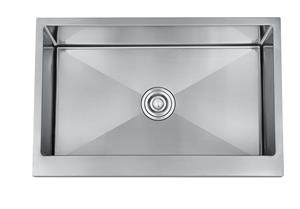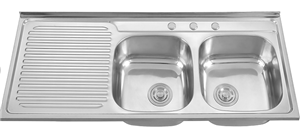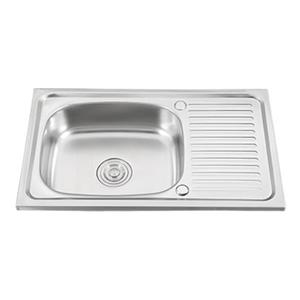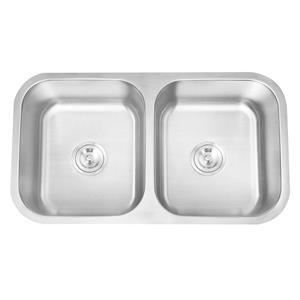What are the factors that affect the durability of stainless steel sinks?
Durability should be taken into consideration when choosing a sink. In addition to lasting longer, a sink that can withstand daily use will ultimately cost less for maintenance. The gauge of the sink, the quality of the stainless steel, the presence of noise-canceling pads, and anti-condensation coatings are a few factors that affect sink durability.
To give you a thorough understanding of what to look for when choosing durable sinks for their clients, we will detail each of these factors in this response.
1. Sink Gauge
Lower numbers denote a thicker gauge, and the sink gauge is measured between 16 and 22, referring to its thickness. The sink’s durability is significantly influenced by its thickness because thicker sinks are more durable against dents and scratches. A thicker gauge sink will also endure longer, necessitating fewer repairs or replacements.

A gauge of 18 or less is typically advised for increased durability. It’s important to remember that thicker gauge sinks may cost more than thinner gauge sinks. Balancing cost and toughness is crucial when choosing a sink for a specific application.
2. The grade of stainless steel
The durability of a sink can also be impacted by the grade of stainless steel used in it. The two most popular grades are 304 and 316, with 304 being more widely used due to its accessibility and resistance to corrosion. But 316-grade stainless steel offers even better durability and corrosion resistance, making it an excellent option for sinks in demanding environments.
Sinks of stainless steel are composed of an alloy with at least 10.5% chromium, forming a barrier that deters corrosion. The sink will be more corrosion-resistant the higher the chromium content. Molybdenum is one more element that can be added to the sink to increase its durability and resistance to corrosion.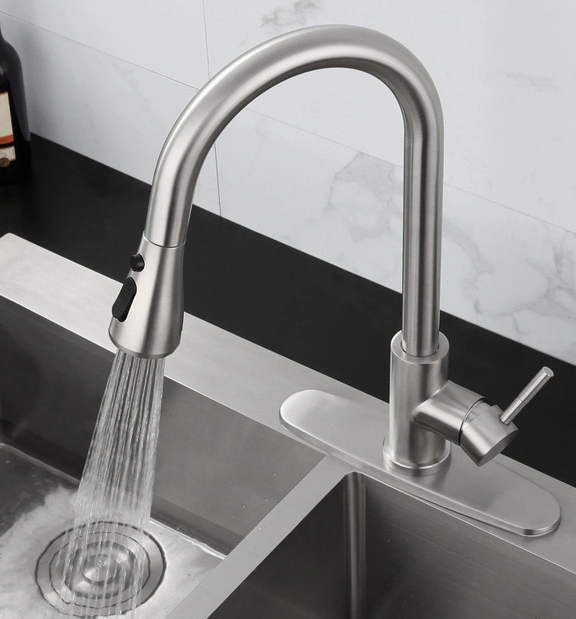
3. Noise reduction pads and Anti-Condensation Coating
Anti-condensation coating and noise reduction pads are two elements that may affect how long stainless steel sinks last. To lessen noise from water running through the sink, noise reduction pads are typically installed on the underside of the sink and made of rubber or foam. By absorbing vibrations and limiting excessive movement, they also aid in preventing damage to the sink.
On the other hand, the anti-condensation coating is a layer applied to the underside of the sink to stop the accumulation of moisture brought on by condensation. This coating prevents condensation by forming a barrier between the air and the sink. As a result, retailers can choose and suggest more dependable and damage-resistant sinks.
To wrap it up, a stainless steel grade, the gauge of the sink, the presence of noise-canceling pads, and anti-condensation coatings, all affect sink durability. Higher-grade stainless steel and thicker gauge sinks are typically more damage resilient; noise reduction pads and anti-condensation coatings can help a sink last longer. It is essential to consider all these factors to choose sinks that will last the longest possible and satisfy customers.

